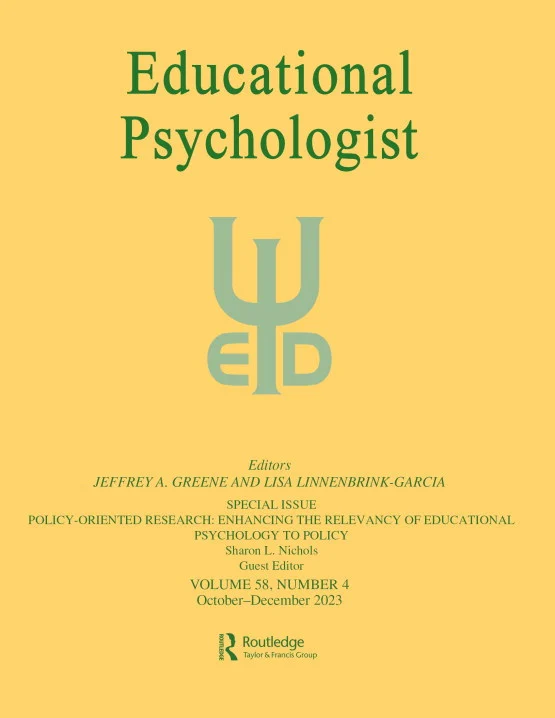Autonomy-supportive teaching: Its malleability, benefits, and potential to improve educational practice
IF 11.4
1区 心理学
Q1 EDUCATION & EDUCATIONAL RESEARCH
引用次数: 129
Abstract
Abstract Autonomy-supportive teaching is the adoption of a student-focused attitude and an understanding interpersonal tone that enables the skillful enactment of seven autonomy-satisfying instructional behaviors to serve two purposes—support intrinsic motivation and support internalization. Using self-determination theory principles and empirical findings, researchers have developed and implemented numerous teacher-focused and methodologically-rigorous interventions to provide teachers with the professional developmental experience they need to learn how to become more autonomy supportive. The findings from 51 autonomy-supportive teaching interventions (including 38 randomized control trials) collectively show that (1) teachers can learn how to become more autonomy supportive during instruction (autonomy-supportive teaching is malleable) and, once learned, (2) this greater autonomy-supportive teaching produces a wide range of educationally important student, teacher, and classroom climate benefits (autonomy-supportive teaching is beneficial). Recognizing this, the article shows how the recent surge in autonomy-supportive intervention research has advanced the conceptual understanding of the nature of autonomy-supportive teaching and clarified its potential to improve educational practice.自主支持教学:它的延展性、益处和改善教育实践的潜力
自主支持教学是指采用以学生为中心的态度和理解的人际语气,使七种满足自主的教学行为能够熟练地实现两个目的——支持内在动机和支持内化。利用自我决定理论原则和实证研究结果,研究人员开发并实施了许多以教师为中心、方法严谨的干预措施,为教师提供他们需要的专业发展经验,以学习如何变得更加支持自主。51项自主支持教学干预(包括38项随机对照试验)的研究结果共同表明:(1)教师可以学习如何在教学过程中变得更支持自主(自主支持教学是可塑的),一旦学会了,(2)这种更大的自主支持教学产生了广泛的教育意义上重要的学生、教师和课堂氛围效益(自主支持教学是有益的)。认识到这一点,本文展示了最近自主支持干预研究的激增如何推进了对自主支持教学本质的概念理解,并阐明了其改善教育实践的潜力。
本文章由计算机程序翻译,如有差异,请以英文原文为准。
求助全文
约1分钟内获得全文
求助全文
来源期刊

Educational Psychologist
Multiple-
CiteScore
19.10
自引率
3.40%
发文量
16
期刊介绍:
The Educational Psychologist is a scholarly journal dedicated to exploring the psychology of learning and instruction. Articles in this journal encompass a diverse range of perspectives, from examining psychological mechanisms to exploring social and societal phenomena related to learning and instruction. The journal publishes theoretical and conceptual articles, as well as reviews and meta-analyses, that significantly contribute to theory or advance the methods used to explore educational psychology. Emphasizing innovation and advancing understanding, the journal does not publish articles solely reporting the methods and results of empirical studies; instead, all submissions, including reviews and meta-analyses, must offer clear implications for advancing theory. In addition to regular articles, the journal features special issues that delve into important themes in educational psychology, along with focal articles accompanied by peer commentary.
 求助内容:
求助内容: 应助结果提醒方式:
应助结果提醒方式:


